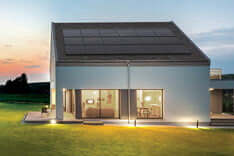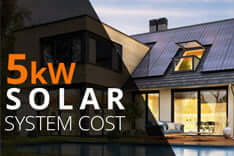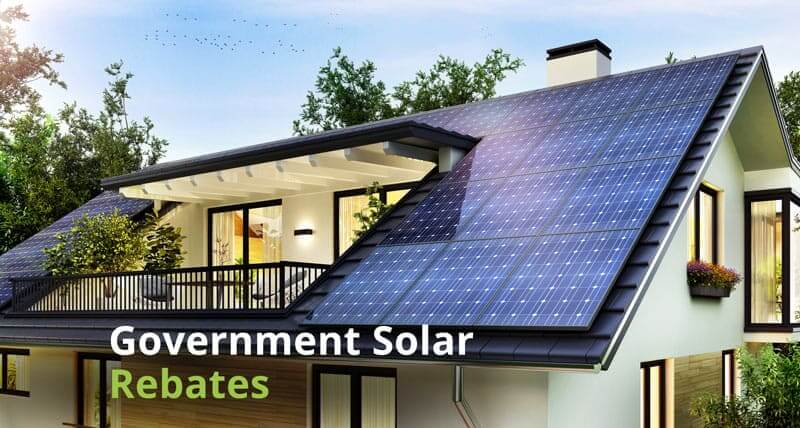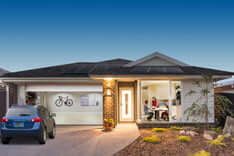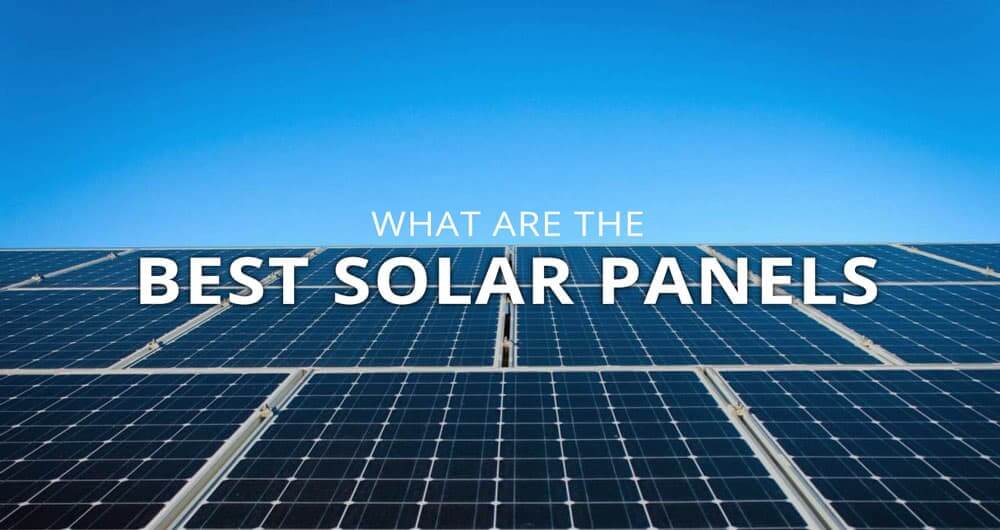Home Do Solar Panels Attract Lightning?
Do Solar Panels Attract Lightning?
Numerous myths circulate about the relationship between solar panels and lightning strikes. A widely held belief is that installing solar panels on your roof could increase the likelihood of your house being struck by lightning. But is there any truth to this claim?
No. Solar panels do not attract lightning, and their metal racking does not increase the risk of lightning strikes.
Both rooftop and ground mounted solar systems are now more at risk of a lightning strike than a tree or a telegraph pole. Despite this, most people still feel that installing electrical equipment on their rooftops makes their homes targets for lightning strikes. However, there is no scientific evidence that supports this assumption.
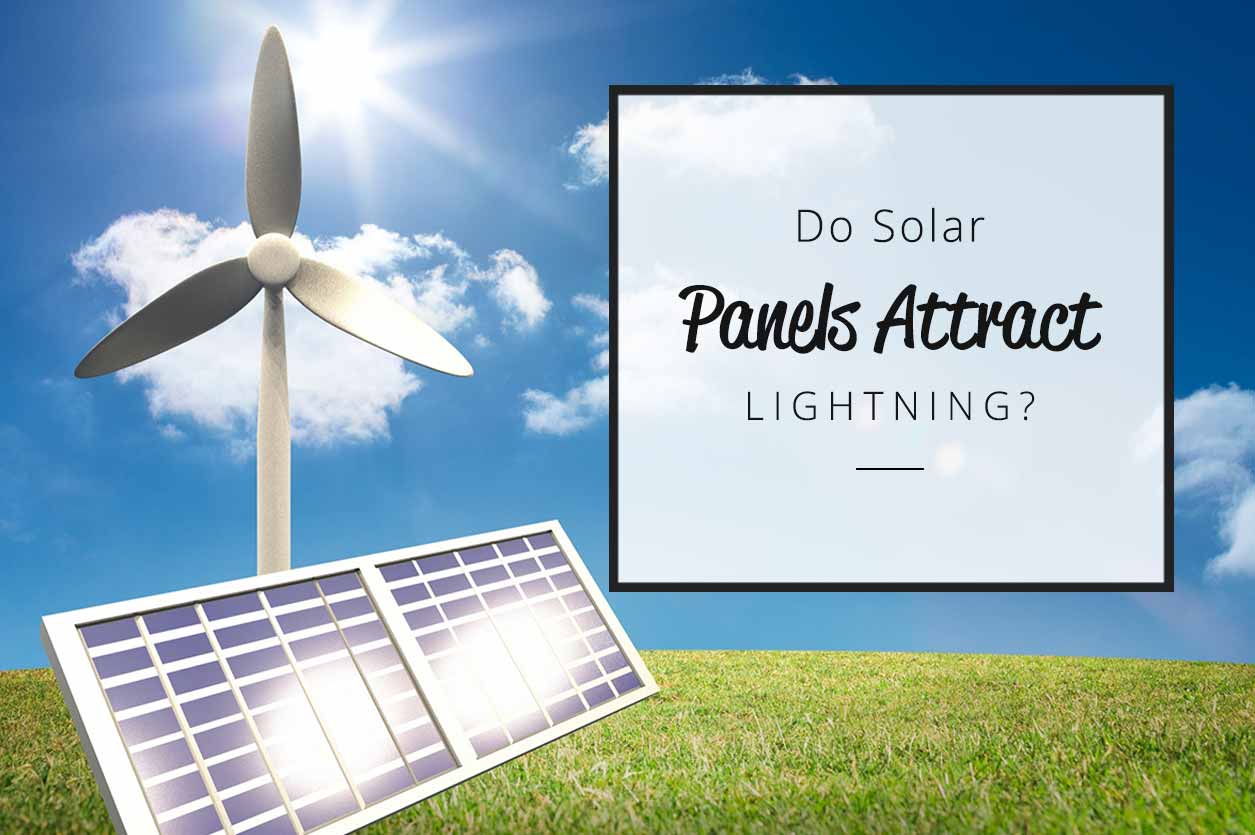
Table of Contents
ToggleDo solar panels increase the risk of a lightning strike?
What makes people believe that solar panels increase the probability of lightning strikes in your home is the metal rack attached to the panels. And since metal is a good electrical conductor, it attracts more lightning, so the panels will definitely increase the risk of lightning strikes.
Contrary to the many misconceptions and myths, solar panels do not increase the risk of lightning attacks. Solar panels have the same probability of being hit by lightning as any other object, including trees, rocks, or even the ground.
What is lightning and how does it happen?
Lightning is a naturally occurring electrical discharge that is caused by an imbalance between a thundercloud and the ground or within the storm clouds themselves.
During a storm, the clouds become negatively charged, and objects on the ground, such as trees and steeples, become positively charged. This creates an imbalance, and the charges attract each other and temporarily neutralize themselves, releasing about one gigajoule of energy equivalent to one million BTU of heat energy.
Lightning is approximately five times hotter than the surface of the sun. This hot air makes the surrounding air expand rapidly and vibrate. This creates the reverberating thunder we hear shortly after a lightning flash.
Do ground mount solar panel systems attract lightning?
No. Ground-mount solar panels do not attract lightning. The system is engineered to withstand harsh weather. More so, they are designed using top-notch materials to prevent them from lightning strikes.
However, ground mount systems are not immune from lightning strikes. Therefore you must take all the precautionary measures to protect your panels from being hit by lightning.
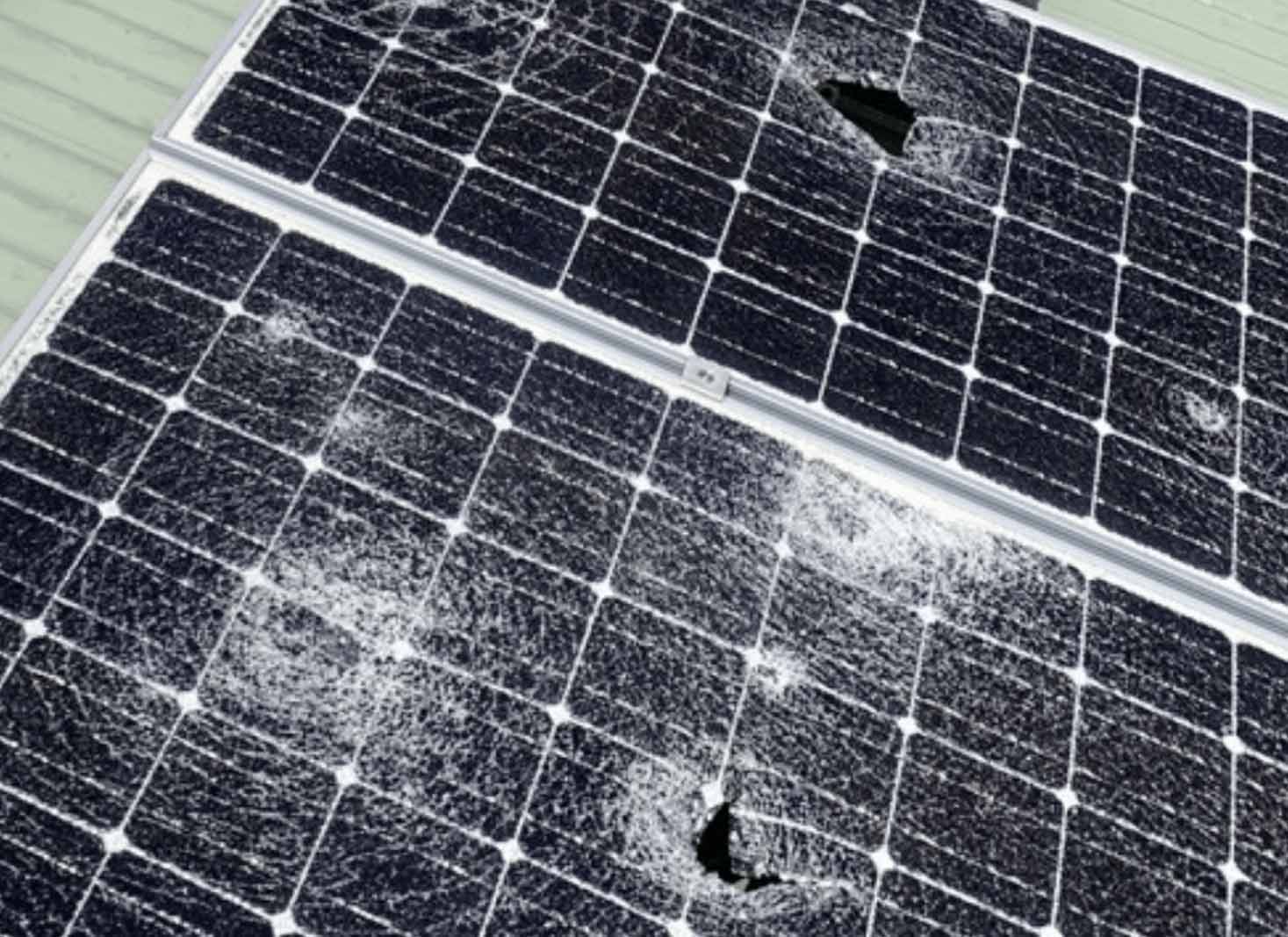
Do lightning strikes damage solar panels?
Lightning strikes cause more damage to solar PV systems than any other natural phenomenon. Although the probability of your panels being struck by lightning is low, one strike can cause extensive damage to the panels and even your home, which can cost you lots of money to repair.
How does lightning cause damage to solar panels?
Lightning strikes can either be direct or indirect.
Direct strikes
Direct strikes are infrequent, but they tend to be very severe. Once a lightning flash hits your panels directly, the whole system can instantly be damaged. Direct strikes meltdown parts of the solar panels, damaging the solar components.
Direct lightning strikes can also induce extremely high currents that can make the system overheat.
Indirect strikes
These are the most common strikes and are not as bad as direct strikes. Indirect strikes create electromagnetic inductions, inducing high voltages inside the solar systems.
The high voltage passes through the wiring to the solar panel components, breaking down the system’s conductor and other parts. The high voltage can also cause sparks that can make combustible materials burst out in flames.
How can I protect my solar panels from a lightning attack
Lightning can cause extensive damage to your solar panels that can be very costly to fix. Worse still, it can damage the whole system, so you will have to install an entirely new system.
So, unless you do not mind spending money on repairs or installing new systems, you should protect your solar system from lightning at all costs. Here are a few ways you can protect your panels from lightning.
1. Ground your solar panels
This is the most common and cost-effective method of protecting your solar panels. Grounding diverts the lightning path and protects the solar system from power surges or any other electrical anomalies.
Grounding is especially important if you live in lightning-prone areas, and it is usually recommended by professionals.
2. Install lightning rods
It is important to install lightning rods if you live in an area frequented by lightning strikes.
Lightning rods effectively protect buildings, equipment (including solar panels), and people from the effects of lightning. These rods create low-resistant paths on the ground, reducing the risk of your panels being hit by lightning.
3. Install power surge protectors
Power surge protectors or arrestors protect your solar panels from being damaged by lightning strikes. These devices absorb induced voltage by either directing lightning to the ground or allowing the surge to bypass the solar panel wiring and components.
4. Maintain your home
It is important to trim trees from rooflines, especially near the installed panels. This is because tree branches could break and hit the panels and cause fire hazards during storms. Also, ensure you regularly clean your panels and get rid of any debris.
5. Check your insurance
Lightning is a natural phenomenon. Therefore, you cannot entirely stop it. The only thing you can do is reduce the risk of lightning strikes by taking preventive measures.
You can also check whether your home insurance covers lightning strikes. Home insurance policies differ from company to company, so it is essential to discuss with your provider to determine if you are covered for damages caused by lightning strikes.
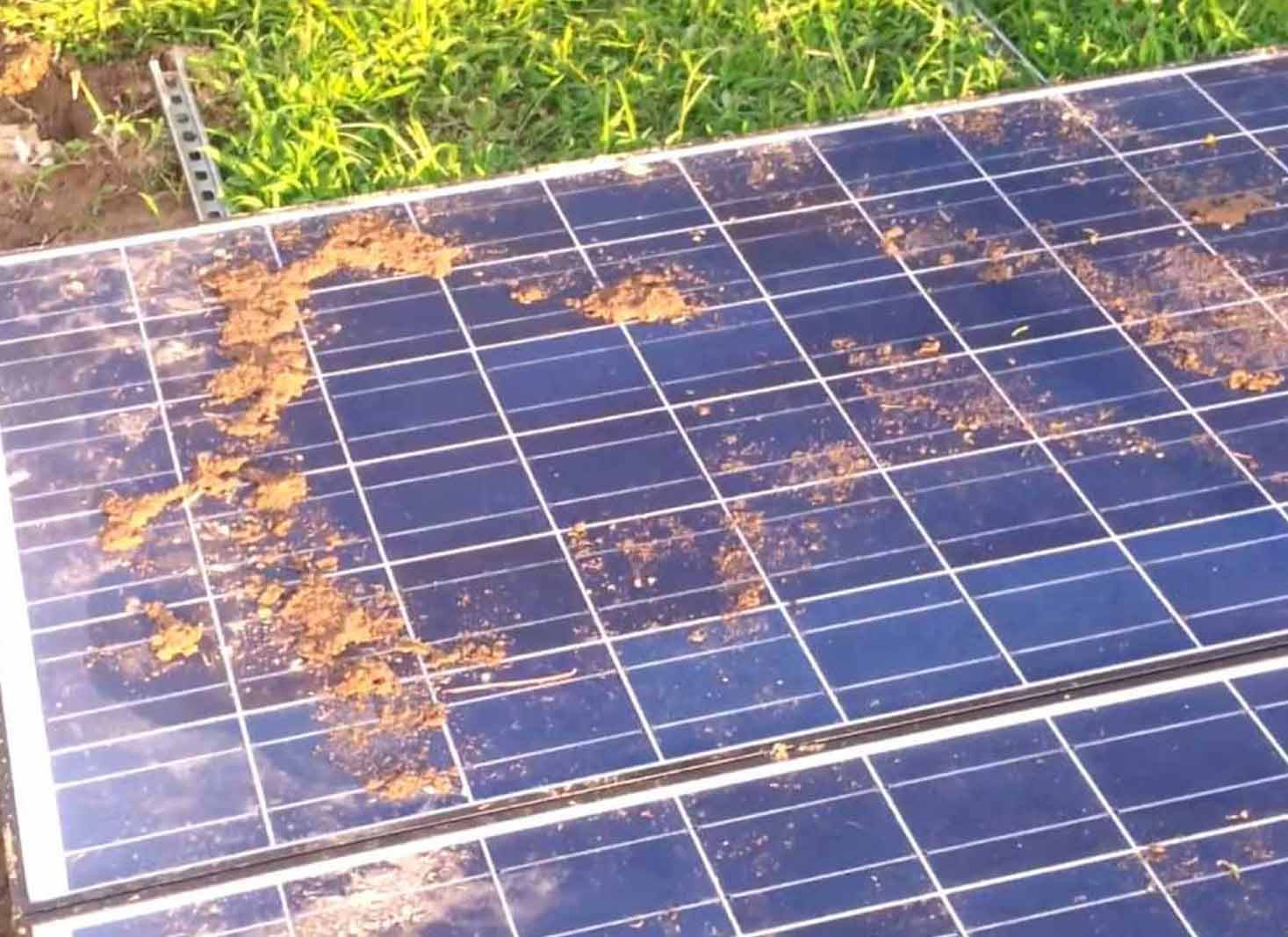
Can you install solar panels in an area that receives a lot of thunderstorms?
Yes. Provided the installation is done properly using high-quality materials and qualified professionals, you have nothing to worry about. The professionals should follow all protocols to ensure your panels are safe from thunderstorms and lightning.
Does the electricity in solar equipment attract lightning?
No. The electricity in solar panels does not attract lightning.
Lightning occurs when there is an imbalance in the atmosphere that builds an electrostatic charge. Lightning can strike anything that has or can build an electrical charge, including the ground or buildings.
The electricity from solar panels (DC) does not have any atmospheric presence; hence, it will not attract lightning.
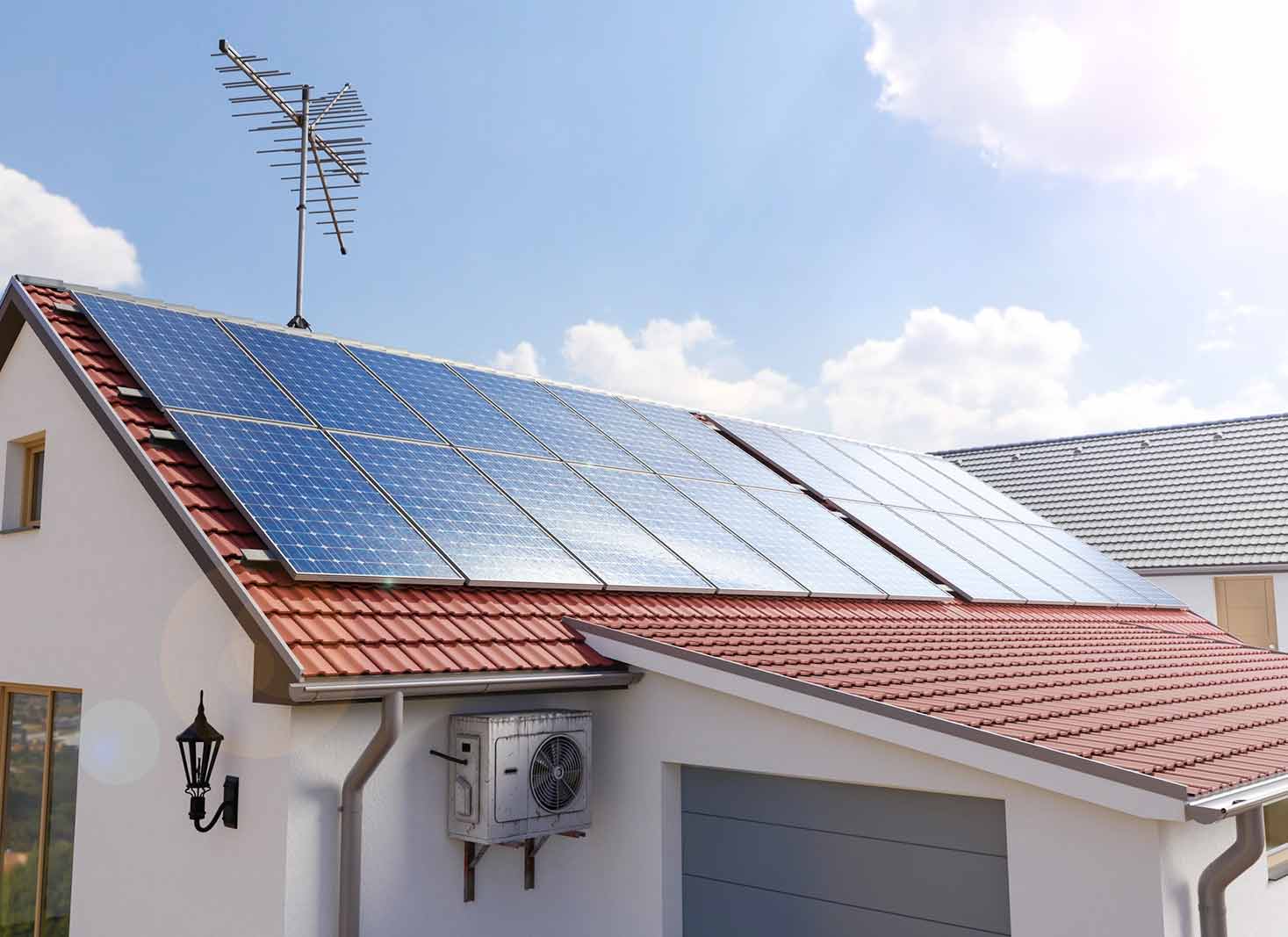
What to do if your home gets hit by lightning
If your home is hit by lightning, do not try to fix anything yourself. It is crucial to contact your utility company immediately, especially if you suspect your electrical devices have been compromised.
The electrical devices may still work, but using them can be very dangerous. Lightning damage may not be noticed immediately, but it can cause shock waves, fire, and electrocution.
If the panel is damaged, do not touch any part of it. To be safe, turn off the circuit breaker to protect your family and pets while waiting for professionals to arrive.
If there are significant damages, contact your homeowner’s insurance, and if you have a claim, your insurance company will help you fix everything so you can resume your normal life.
FAQ's
Myth: Any structure or object with metal, such as the metal on mobile phones, watches, jewelry, etc., attracts lightning.
Fact: Heights, pointy shapes, and isolation attract lightning. The presence of metal on objects or people does not increase the risk of lightning attacks.
Yes, lightning or a high-voltage surge can damage solar panel inverters. Grounding your solar system properly reduces the risk of damage during lightning strikes.
Table of Contents
Toggle
